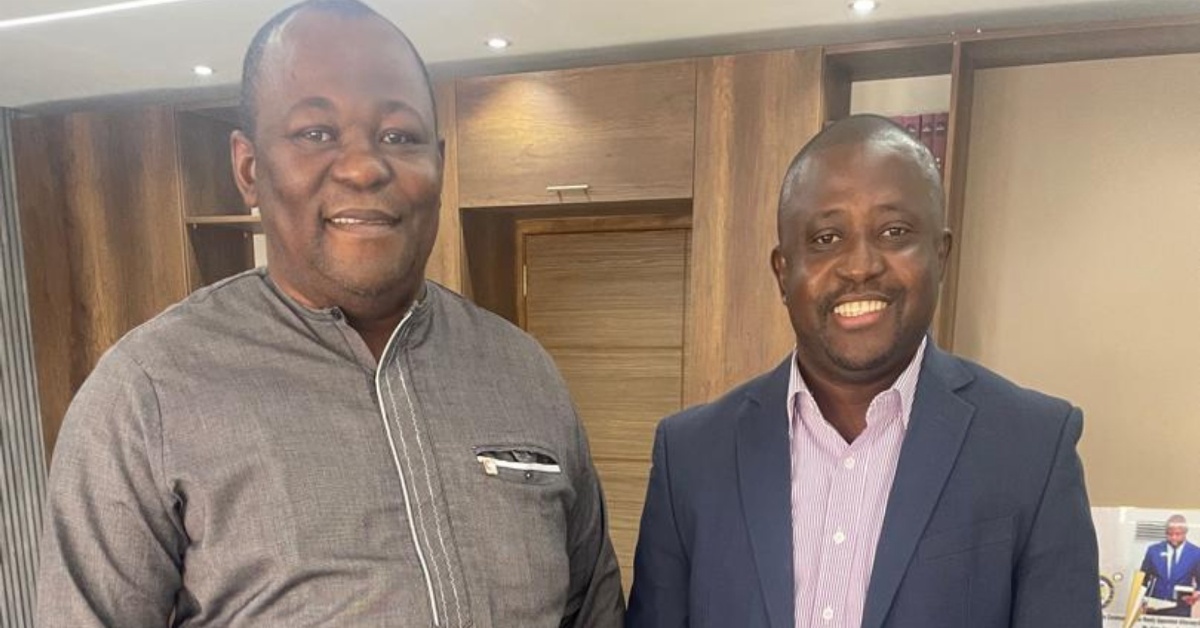The Tripartite Steering Committee Secretariat (TSCS) has intensified efforts to implement key recommendations outlined in the Tripartite Report and Unity Agreement, signaling a growing momentum toward democratic reform and national unity in Sierra Leone.
During a recent briefing with the Attorney General and Minister of Justice, Alpha Sesay, TSCS Coordinator Ngolo Katta likened the ongoing process to “driving on a highway” — praising the speed, commitment, and cooperation among institutions involved in delivering on the Unity Agreement’s pledges. The update highlighted both progress made and initiatives underway in relation to institutional reforms and transitional justice.
Katta disclosed that the Independent Management and Functional Review of the Electoral Commission of Sierra Leone (ECSL) has been completed and is set for an official launch in April 2025. Similar reviews are ongoing for the Political Parties Registration Commission (PPRC), the Independent Police Partnership Board (IPPB), and the Sierra Leone Broadcasting Corporation (SLBC), led by the Public Service Reform Unit (PSRU). The process, expected to span three months, aims to address operational inefficiencies, administrative challenges, and poor working conditions.
During a review session at SLBC, PSRU officials emphasized the station’s outdated equipment — particularly transmitters whose manufacturers are no longer operational — as a major barrier to reach and signal quality. These findings reflect deeper structural issues affecting national institutions and underscore the urgency of reform.
On the legal front, Attorney General Sesay confirmed that 10 court cases related to the political crisis in Makeni have been dropped in line with Resolution 4 of the Unity Agreement. Of the three individuals tried in Freetown, one has been acquitted while two have been convicted and are awaiting sentencing. The Attorney General’s Office is exploring appropriate measures to resolve these matters in the spirit of national reconciliation.
In addition, 17 of the Tripartite Report’s recommendations align with provisions in the Constitutional Review White Paper. These are not entrenched clauses, and a Cabinet paper is being prepared this week for review and approval. A dedicated Legal Team, supported by an international legal expert through International IDEA, is being assembled to lead stakeholder consultations and begin drafting legislative proposals. These will inform amendments to key laws, including the IMC Act, Cyber Security Act, SLBC Act, and Police Act.
Katta also noted that the Law Reform Commission is nearing completion of its review of the Police Act. Regarding Recommendation 78, the Attorney General has proposed a concept note for a national dialogue on electoral systems—debating the future of proportional representation versus first-past-the-post for the 2028 elections.
TSCS’s recent briefing with development partners—including the EU, Iceland, Ireland, U.S. Embassy, International IDEA, DAI, and UNDP—earned commendations for progress made. Partners requested documentation on Cabinet approval for reviews of the PPRC and Elections Act and sought updates on the creation of a dedicated parliamentary oversight committee on electoral matters.
Resolution 20 of the Tripartite Report speaks directly to this need. A meeting with parliamentary leadership is being scheduled to establish a standing committee that will review electoral cycles, monitor electoral preparedness, and contribute to legislative reform.
Meanwhile, TSCS continues its engagement with national institutions and civil society. On March 11, the Secretariat hosted the Moral Guarantors of the Unity Agreement, led by Hawa Samai of the Independent Commission for Peace and National Cohesion (ICPNC). Briefings are also being prepared for the international moral guarantors—the AU, ECOWAS, Commonwealth, and EU.
On March 18, the Chairman of the National Council for Civic Education and Development (NaCCED), Joseph Munda Bindi, visited the TSCS to coordinate civic education campaigns aligned with the Tripartite recommendations. The partnership will ensure coherent public messaging on critical reform issues.
Upcoming engagements include meetings with the All Peoples Congress (APC), the All Political Parties Association (APPA), the Sierra Leone Association of Journalists (SLAJ), and various civil society leaders to deepen awareness and participation in the implementation process.
As Sierra Leone navigates a critical moment in its democratic journey, the Tripartite Secretariat’s coordinated rollout of reform initiatives reflects a renewed national commitment to reconciliation, institutional accountability, and electoral integrity.



 Post a comment
Post a comment









